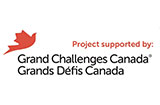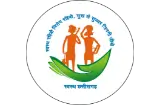ENGAGE is an online gatekeeper training program to train secondary and higher secondary school teachers to identify, assess, support and refer at-risk adolescents for suicide prevention support in Chhattisgarh, India.
Why ENGAGE?
India accounts for a third of suicides globally. India also has the highest number of adolescents in the world (approximately 253 million). A nationally representative mortality survey carried out in India determined that suicide is the leading cause of death among older adolescents aged 15-18. Official estimates suggest that nearly 28 children die by suicide every day.
The state of Chhattisgarh has the third highest rate of suicide in India. At 28.231.8 deaths by suicide per population of 100,000 persons, Chhattisgarh’s suicide rate is more than double the national average of 12.412.0. While suicide is a major public health issue that needs immediate attention, Chhattisgarh’s public healthcare infrastructure is inadequately equipped to address this concern. Furthermore, there are no suicide prevention programs being implemented in the state.
With poor access to psychosocial services, limited resources and its conflict-prone context, Chhattisgarh requires a low-cost and resource-effective suicide prevention strategy.
Gatekeeper training is an evidence-based suicide prevention strategy for early identification, assessment, management and follow-up for those at-risk as recommended by the World Health Organisation’s (WHO) LiveLife implementation guide for suicide prevention. Chhattisgarh’s State Suicide Prevention Strategy also identifies gatekeeper training as one of the strategic interventions to reduce suicides and attempted suicides.
Community members can play an important role as gatekeepers to create awareness, reduce stigma and fill the gap in suicide prevention services for all persons including adolescents.
The World Health Organization recognises teachers as important community members to provide suicide prevention support and help save the lives of adolescents as they regularly interact with them at school and can provide them with support during crisis.
Existing evidence supports the effectiveness of gatekeeper training courses in improving knowledge, attitude and self-efficacy outcomes. However, there is little evidence for sustainable long-term behavioural changes in teachers who complete such courses.
How are we addressing the issue?
ENGAGE was conceptualised to develop, implement, and evaluate an online gatekeeper course for secondary/higher secondary public-school teachers. ENGAGE is being implemented in three rural districts of Chhattisgarh.
The self-paced e-learning course comprises of eight interactive modules developed using a human-centred and participatory design approach. The modules were developed in close consultation with teachers, youth with lived experience, mental health professionals and civil society organisation. The e-learning course equips teachers with the skills identify, support and refer adolescents who have thoughts or plans of suicide.
The e-learning course was delivered to school teachers in Hindi through the government-run teacher training platform, DIKSHA.
To identify the most effective strategy in motivating teachers to identify, support, and refer adolescents for further support, a different variant of the course will be delivered to each of the three districts (intervention districts)
In Janjgir-Champa, teachers will receive only the e-learning course
In Raigarh, teachers will receive (a) the e-learning course and (b) an online refresher training
In Korba , teachers will receive (a) the e-learning course (b) an online refresher training and (c) online mentoring and supervision from the project team.
Durg acts as the control district to compare outcomes with the intervention districts.
To evaluate the effectiveness of the program, we will collect data on the number of teachers practicing as gatekeepers and the number of adolescents identified and referred in each of the districts.
What is the potential impact?
ENGAGE is the first such adolescent suicide prevention program in Chhattisgarh and India. It has the potential for high impact at a very low-cost and can be replicated across different contexts in India and low- and middle-income countries.
Where have we reached?
90% teachers across the 4 districts (including the control district) have completed the pre and post assessments.
87% teachers (4569 out of 5219 teachers) enrolled, and 72% teachers (3775 out of 5219 teachers) completed the e-course across the three intervention districts.
We are now working with the DSE and SCERT to roll out the online refresher training in two intervention districts. Simultaneously, we are collecting post-training data from all districts to identify the number of adolescents who have been supported.
Project Leads
Principal Investigator
Arjun Kapoor, Centre Mental Health Law & Policy, ILS, Pune
Co-Principal Investigators
Soumitra Pathare, Centre Mental Health Law & Policy, ILS, Pune
Lakshmi Vijayakumar, SNEHA Suicide Prevention Centre, Chennai
Funders & Partners
Funded by
Grand Challenges Canada
Partners
Quicksand Design Studio (Design Partner)
Dept. of Health services, Chhattisgarh (Implementation partner)
Dept. of School Education, Chhattisgarh (Implementation partner)
State Council of Educational Research and Training, Chhattisgarh (Implementation partner)


